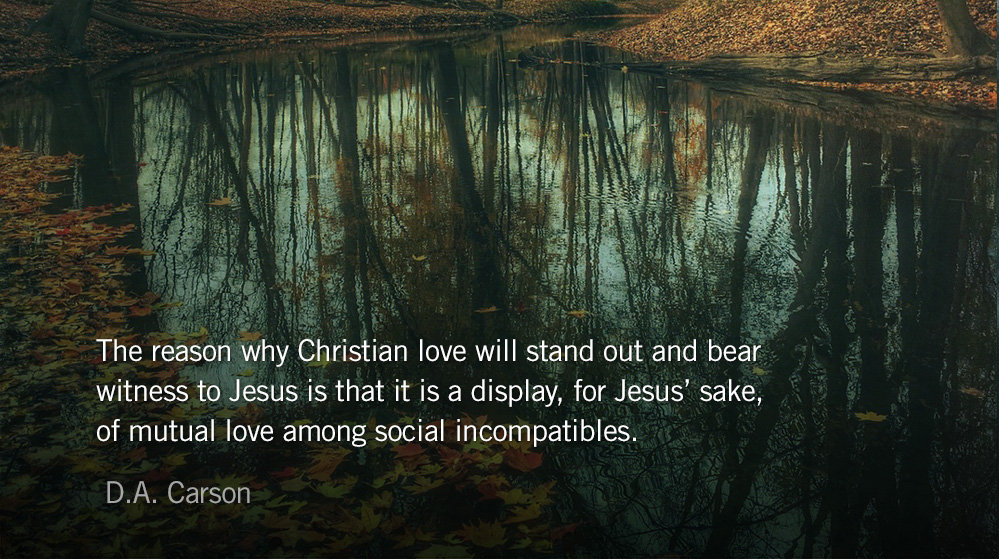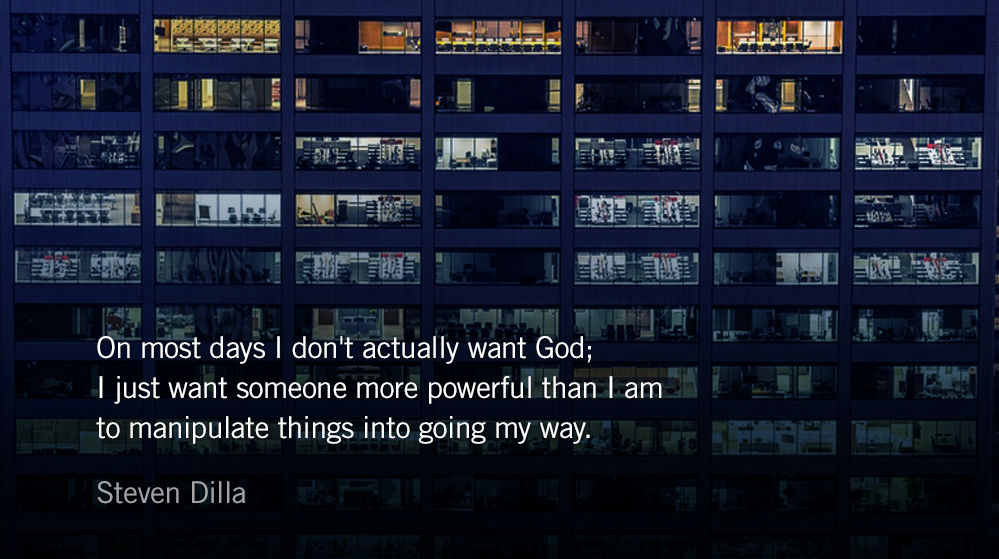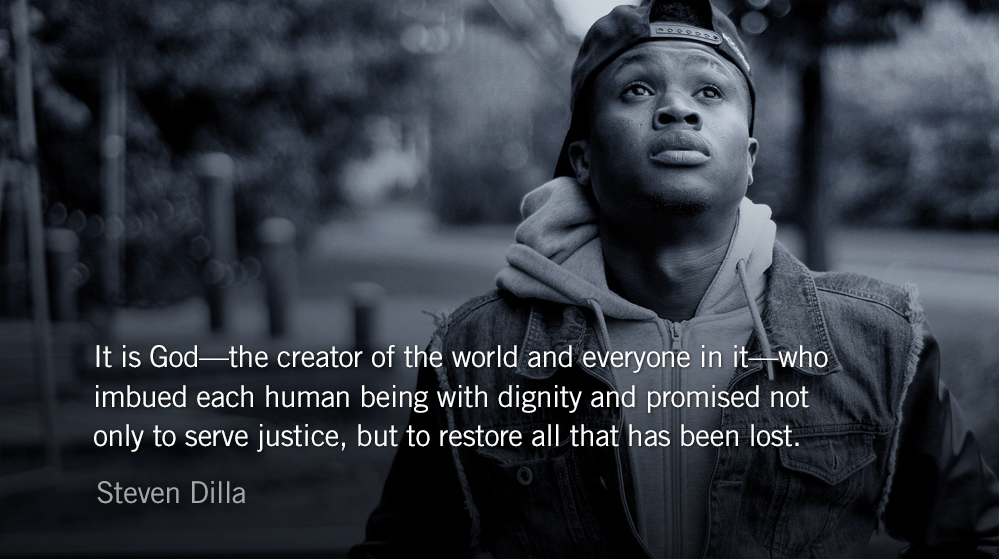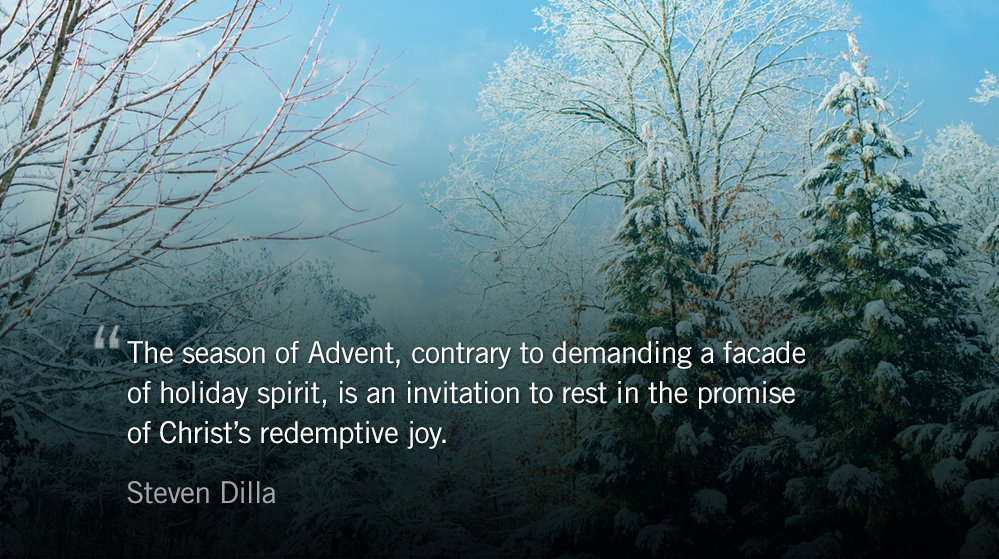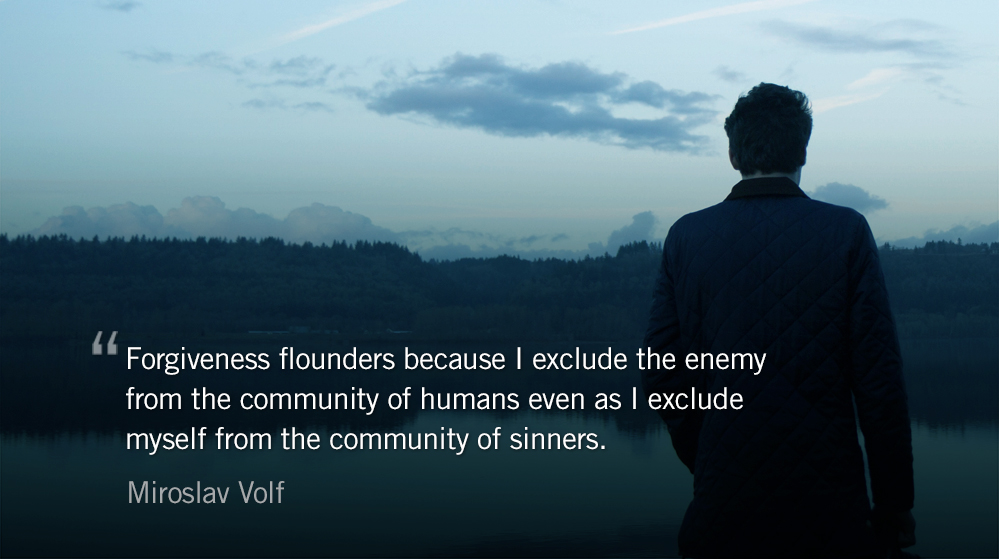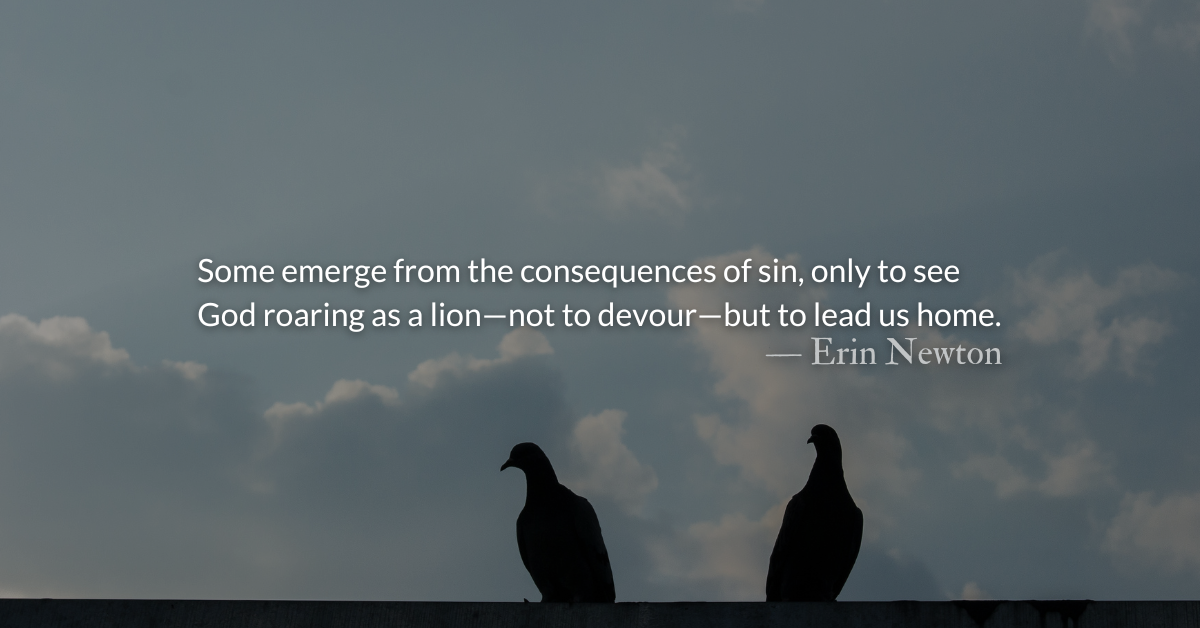If the greatest effect of God’s love in me is only that I love those similar to me and who agree with me, then I need God as much as I need a new kind of toothpaste. — John
Readers’ Choice (Originally published May 17, 2016)
Love covers a multitude of sins. — 1 Peter 4.8
“One of the reasons why there are so many exhortations in the New Testament for Christians to love other Christians is because this is not an easy thing to do,” D.A. Carson explains. “The church itself is not made up of natural ‘friends.’ It is made up of natural enemies.” It is Christ himself who unites faithful Christians—in Dietrich Bonhoeffer’s words, “nothing more and nothing less.” Carson continues:
What binds us together is not common education, common race, common income levels, common politics, common nationality, common accents, common jobs, or any- thing else of that sort. Christians come together, not because they form a natural collocation, but because they have all been saved by Jesus Christ and owe him a common allegiance. In the light of this common allegiance, in the light of the fact that they have all been loved by Jesus himself, they commit themselves to doing what he says—and he commands them to love one another. In this light, they are a band of natural enemies who love one another for Jesus’ sake.
Carson argues that unity is not intrinsically good. The first church was united around the work of Christ; the people in Babel were united around building glory for themselves. If you want to know what a community values most, look to what the members hold in common.
Churches formed around commitment to a political party—rejecting or ostracizing members of the other party—are confessing their idolatry. Churches which bind around economic status, hobbies, or ethnicity reveal their self-centeredness. Christian unity is an extension of Christ’s love and sacrifice for us, not a sign of our strength.
We are to love Christ more than our ideologies, but we are also to love him more than our desire to penalize or seek retribution from those who hurt us.
There is no Scriptural expectation that love will cover all sins between people. Abusive relationships, even marriages, are to be exited—with Scripture’s blessing—for the benefit of both parties. Short of this, love is expected to cover a multitude of sins. Why? Because living in a broken world exposes us to a multitude of grievances.
Ideological pettiness is the scourge of social media—and it’s bleeding into the real world a little more each day. Not-so for the faithful Christian. Carson concludes, “The reason why Christian love will stand out and bear witness to Jesus is that it is a display, for Jesus’ sake, of mutual love among social incompatibles.”
Today’s Reading
Lamentations 1 (Listen – 4:44)
Psalm 32 (Listen – 1:34)
Submit a devotional for Readers’ Choice
Contribute your favorite Park Forum devotionals to Readers’ Choice.
Email me the title or link. If you don’t mind adding a sentence or two as to why each post was significant to you, I would love to include your voice as well.
Thanks for being part of The Park Forum community. We are so thankful to be part of your devotional rhythm.

